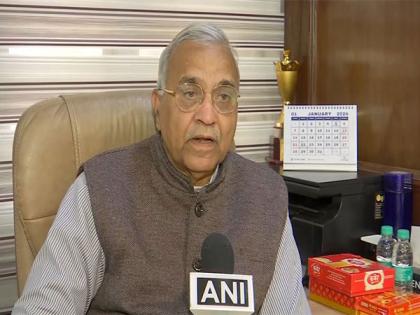Pharma businesses ready with contingency plans faced with US tariffs: Association of Healthcare Providers (India)
By ANI | Updated: August 1, 2025 18:19 IST2025-08-01T18:11:12+5:302025-08-01T18:19:44+5:30
New Delhi [India], August 1 : Indian pharmaceutical manufacturers are preparing a two-pronged strategy to offset the impact of ...

Pharma businesses ready with contingency plans faced with US tariffs: Association of Healthcare Providers (India)
New Delhi [India], August 1 : Indian pharmaceutical manufacturers are preparing a two-pronged strategy to offset the impact of the soon-to-be-effective 25 per cent US tariff on Indian goods, which includes drug exports, with industry experts anticipating that the move could significantly raise medicine costs in the American market.
Girdhar Gyani, Director General of the Association of Healthcare Providers (India), has voiced concern over the financial burden the proposed US tariff would impose on both Indian exporters and American consumers.
India currently supplies around 47 per cent of the US pharmaceutical market, largely in the form of affordable generics.
"If the United States enforces this 25 per cent tariff, the cost of drug delivery in the US will inevitably rise. Our estimates show that American drug prices could increase by 20 to 25 per cent annually a burden of nearly USD 6 to USD 7 billion. It's unclear whether the US healthcare system can absorb such an impact," Gyani said.
According to its website, the Association of Healthcare Providers (India) , a non-profit organisation, represents the majority of healthcare providers in India.
Despite the initial blow to Indian manufacturers, Gyani stated that industry players are already preparing contingency plans.
One such measure is ramping up production in US-based and Mexico-based facilities owned by Indian firms, which, according to Gyani, would bypass the tariff restrictions.
"The second approach involves a shift in focus from basic generics to value-added combination drugs. These combination drugs, which offer the convenience of two medicines in one, can be priced higher despite having similar production costs," he noted.
The goal is to increase the volume and price range of such drugs, thereby maintaining competitiveness even under the new tariff regime.
Gyani also suggested that continued diplomatic engagement between New Delhi and Washington could help mitigate the situation.
"Negotiations between the two governments are likely to continue, and we may eventually see a reduction or reconsideration of the tariff policy," he said.
The executive order signed by President Donald Trump on Thursday has imposed a flat 25 per cent tariff on all goods from India, with no product-level exemptions.
The pharmaceutical sector has been a key pillar of India-US trade relations.
Disclaimer: This post has been auto-published from an agency feed without any modifications to the text and has not been reviewed by an editor
Open in app